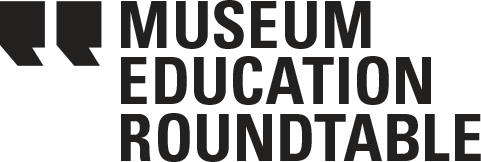CALL FOR ARTICLE IDEAS
Journal of Museum Education
Vol. 51 No. 1 Spring 2026
Education as Evaluation: Moving From My Questions to Our Questions
Guest Editors: Michelle Grohe and Hannah Heller
As we reflect on the ten-year anniversary of JME Issue 51.1, Empowering Museum Educators to Evaluate, it seems timely to mark this moment by celebrating and acknowledging the variety of advancements we have made as a field in the time since.
Ten years ago, questions focused on concrete strategies and tools for creating a culture of evaluation at your institution, conducting visitor studies with limited resources, and implementing and sharing findings. In many ways, not much has changed; concrete tools and case studies will always be helpful for professional growth, and our resources continue to be as limited as ever. That said, we feel the case for evaluation has been made, and now it is time to turn inward and reflexively consider not just the need to evaluate the impact we have on our public, but how we evaluate that impact.
We invite articles for this issue that examine innovations in the intersection between museum education, evaluation, and audience studies and that reflect contemporary scholarship on the topic. Specifically, we are interested in new ways for museum education practitioners at any level to implement evaluative thinking into their processes – not just at the end of a program, but throughout. What are we curious to understand about the audience experience that we don’t already know? How do these curiosities reflect what our visitors are also curious about? How can we resist a transactional relationship with visitors, staff, and volunteers? How do we ensure that our data is actionable, and ultimately supports our missions to serve our audiences better? How can “my” questions become “our” questions?
Questions that authors might address include:
- What do evaluation ethics look like now as we better understand the role of White supremacy culture (Jones & Okun, 2001) in many of our workplaces and processes?
- What new methods exist for studying impact (e.g., narrative inquiry, counternarratives, virtual options)?
- What might a trauma-informed approach to visitor studies look like?
- What can be learned at the intersections of museum education, visitor studies, and critical studies (e.g., Critical Race Theory, QuareTheory, and Disability Studies)?
- How might community-centric, culturally responsive, and participatory approaches to evaluation mutually benefit the community and institution?
- How can we balance slow, intentional work with the urgency of needing results quickly?
- What are creative ways for the museum to take on the burden of labor and costs of evaluation?
- How can we make visible the work museums are doing to learn about their audiences?
- What are ways evaluation can inform internal organizational learning?
- What are examples of creative reporting procedures that go beyond a standard slideshow or written report?
- How has the “Covid pause” impacted evaluative work in our institutions? How do we “get back” (and do we want to?)?
Submission Process and Criteria
We encourage submissions from practitioners working in all types of settings, locations, and career levels. Submissions may also take alternative form besides formal, written academic articles, including artistic interpretations, interviews, lesson plans, personal reflections, and more.
We will prioritize submissions that:
- Have a clear connection to the intersection between museum education and evaluation, research, assessment, and/or visitor studies
- Frame insights in a way that will help them be transferable to settings different from your own
- Foreground connections between contemporary evaluation practices, equity, and social justice.
- Represent the breadth and diversity of our global field
As a whole issue, we aim to ensure the articles represent a variety of museum types, sizes, and locations. Authors writing from perspectives of people with disabilities and/or historically marginalized identities are prioritized.
To be considered for the issue, potential authors must complete this brief online form with author contact information, a clear thesis and an abstract for your proposed article, and answers to the following questions 1) how your article and the work it outlines advances evaluation practices in museums 2) how your article and the work it outlines specifically relates to museum education, and 3) how your article and the work it outlines is rooted in the pursuit of equity and social justice.
Submissions are due via online form by 5pm ET Monday, February 3, 2025.
Next Steps:
The guest editors will review submissions with the support of the MER Editorial Team and contact potential authors to discuss their proposed article ideas.
Once an article idea is accepted, authors must submit a maximum of 4,500 word draft paper and short bio to the guest editors on or before May 19, 2025. All submissions accepted by the guest editors will then undergo the standard peer review process, in which authors will not know who reviewed their work and reviewers will not know who authored the submission. Reviewers recommend publication, revision, or rejection of a submission.
Visit our Journal Submissions page for more information or feel free to contact the editors at [email protected] with questions.
As an organization based in the United States, MER is committed to the principles of the Americans with Disabilities Act (ADA). In addition, with international authors and readers, we strive to make the Journal of Museum Education as accessible as possible and will provide accommodations. For specific accommodations at any point during the submission or writing process, please contact: [email protected].
The Journal of Museum Education (JME) is the premier peer-reviewed publication exploring and reporting on theory, training, and practice in the museum education field. Journal articles—written by museum education practitioners and scholars—explore such relevant topics as museum-related learning theory; visitor engagement and community involvement; evaluation; teaching strategies for art, science, and history museums; and the responsibilities of museums as public institutions.

